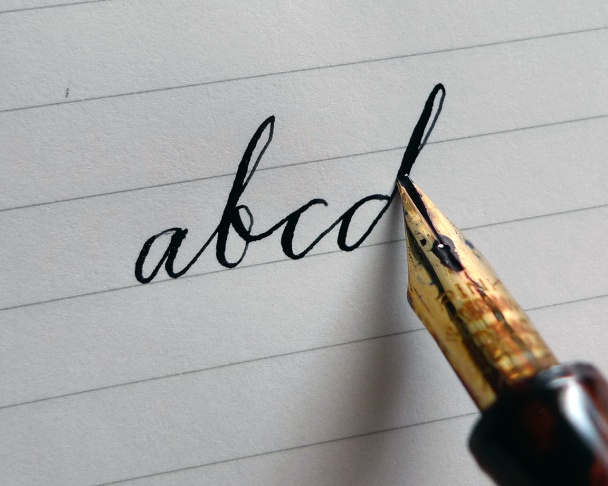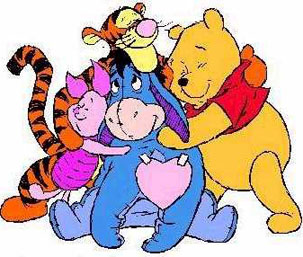
Another week in the world of education, and another teenager, Ms Suzy Lee Weiss, has gone through the epiphany after several university rejections that university admissions systems are not fair. Well, no crap Sherlock.
Yes, yes, her writing is satire. Yes, it’s tongue-in-cheek and self-deprecating; she’s got so much wit and cleverness that she’ll go far…yada yada yada yawn. That she’s smart enough to write a piece of social commentary and not appear stupid on television isn’t really that amazing. There are many teenagers, all across the world, at many different ages, who are capable of the same things. It’s not a magic Midas touch, it’s simply a matter of temperament. Yes, she’s clever, but she really shouldn’t be afforded some special attention just because she’s pointed out what most people have known for ages:
Fair systems are not really fair.
Actually, I can’t think of a system that is fair. Can you? They may work, certainly, but they may not be completely fair in that they may not work to the convenience of everybody. Usually the majority, but not everybody. There’s an often fundamental flaw in everything, from job application systems to traffic.
So, if I agree the system isn’t fair, what’s the problem with Ms Weiss’ article?
It exposes the deeper modern problem, I think, that generations of youth are raised to expect certain things. We are taught that when we do A, we will get B, when we do B, we get C…and so on. We are trained in nursery to get into junior school, at junior school we are trained to get into high school, and from high school we are trained to get into university and so on. When we complain that this rigid route doesn’t make us happy, we are promptly told that the only way we can be happy, truly happy, is to acquire the money that will enable us to be happy. No matter what we want to be, it is only money that will make it possible. And thus we return to the route.
Yes, it is a question of money.
Look, if people weren’t concerned about money and how they’d be able to feed themselves in the future, there would be less people going to university. There’d be less people working 9-5 hours in office jobs to make enough money to get into the job they actually want to do. We do these things only because the established route tells us that money is necessary to enable us to live adequately enough that we can find happiness. If money (and the prestige associated with it) was no object, the only people going on to higher education and caring about ‘Ivy League’ quality would be the people who found it truly delightful to learn. Which, unfortunately, is not that many teenagers.
Ms Weiss, like many other teenagers across the globe, appears stuck on this route. Her real complaint, although she may not realise it, is not the flawed admissions system but this flawed happiness system. Rejection by universities she felt entitled to attend opened her eyes to the flaws of the system. I think for a moment she realised that she had been lied to by her entire society, in that this search for money doesn’t necessarily lead to happiness. This route is not as rigid as it appears; few people who follow it ever actually attain the comfortable monetary status they seek. The instability of college admissions opened Ms Weiss’ eyes to the variables which conflict with this goal. Yes, certainly money gives you time, resources and the opportunity to pursue happiness, more so than poverty or living on the bread line. But the mistake that is too often made is that many people are taught that money and happiness are interchangeable. And when they realise that this route is not so straightforward as one has been told, it leaves people shaken. You begin to question your life so far and you ask: what is the point of all of this? Why do I bother if I’ll never actually reach my goal?
In Weiss’ case, immediately after asking that question, she looked to find a source of blame so that she could move back onto the route. It’s the unfair admissions system stopping me, not anything I’ve done/not done.
What we need to do to stop this from happening is that we need to tell teenagers new things.
- Yes, trying is the way to success. But. Sometimes, no matter how much you try, you will not succeed in your goal.
- Often, this is because you have the wrong goal. You’re looking for success at the end of the road. Sometimes, ‘success’ is the happiness, the experience, the friends and the life you make as you travel down that road.
- Life isn’t fair, and it never will be.
- Happiness is a form of wealth. Wealth is not a form of happiness.
- Actually, do be yourself. It’s not what universities or employers are looking for, but it’s the way to be happy. Bill Gates and Steve Jobs didn’t get where they did faking it, they got where they did trying to do what made them happy.
Focusing on the unfairness of one particular stage of life never got anybody anywhere. Ms Weiss’ case will die down soon, and as she is already apparently from a good middle-class background, with a sister working for the Wall Street Journal, she’ll likely graduate and find her desired job soon enough. At some point she’ll likely realise that it makes not so much difference where you went to school but rather, what you got out of it.
Money isn’t necessary for a happy life. Definitely, a hand-to-mouth existence isn’t easy at all – I know that myself; my family is far, far from wealthy – but there’s something wrong with living to make money to enable you to live to make money. That is only living to survive. Supporting a family isn’t easy on low funds either, I understand that. Many people think the idea of seeking out only happiness is ridiculous liberalism, and that’s understandable, because after a certain age and set of experiences that is no longer an option. But I’d like to see a generation, just one, which told its children to live their lives seeking happiness, not ephemeral pleasure or money. Just happiness. Somehow, I don’t think they’d have the same problem. Because they wouldn’t go into it believing that things would be easy. But they’d go into life knowing that as hard as things got, they’d be happy at the same time.
At some point in the past you were born, and at some point in the future you’ll die. Living is not obsessing over trivial matters, but meaningfully making up the difference. And if you disagree with me, the comment section is just below.






